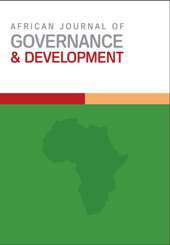Contrasting Leadership Paradigms: The Clash Between Indigenous African Leadership Systems and Eurocentric Democratic Governance in Zimbabwe, Uganda and Rwanda
Main Article Content
Abstract
This study delves into the dynamic interplay between traditional African leadership paradigms and imposed democratic systems, with a focus on the extended tenures of Robert Mugabe, Yoweri Museveni and Paul Kagame. Anchored in post-colonial theory, political culture theory and leadership theory, it elucidates the cultural underpinnings that contribute to leaders’ reluctance to cede power and their subsequent impact on democratic governance. Employing a qualitative methodology with in-depth case studies, the study reveals a profound conflict between entrenched traditional norms and modern democratic ideals. The findings underscore the persistent influence of traditional leadership practices characterised by authoritarianism and electoral manipulation. This study situates these findings within the broader legacy of colonialism and the ongoing struggle for democratic consolidation, offering a nuanced understanding of the cultural dimensions of political leadership in Africa. The study proposes directions for future research and policy interventions aimed at enhancing political stability and democratic governance across the continent.
Article Details

This work is licensed under a Creative Commons Attribution-NonCommercial-NoDerivatives 4.0 International License.
